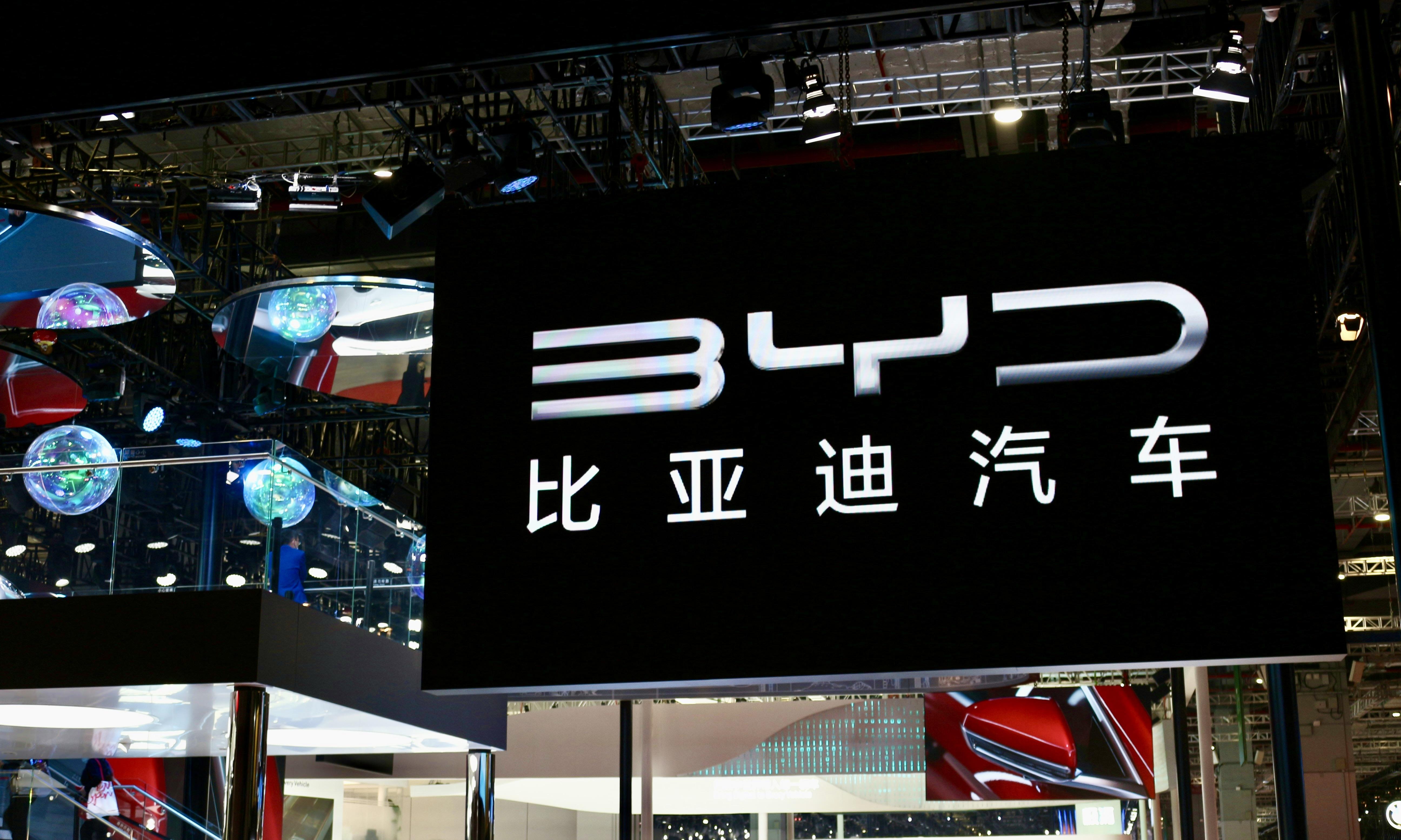For the first time, BYD, China’s leading EV manufacturer, has surpassed Honda and Nissan in vehicle sales during Q2. The company’s rapid growth, driven by affordable electric models, now puts it in direct competition with Ford.
China’s BYD Overtakes Honda, Nissan in Vehicle Sales
For the first time ever in the second quarter, BYD, the leading electric vehicle manufacturer in China, outsold both Honda and Nissan. Currently, BYD ranks as the seventh-largest automaker in the world. Cheap electric vehicles from BYD are rapidly catching up to Ford in important worldwide markets.
Sales of BYD new vehicles increased 40% from April to June, reaching 980,000 units, as reported by MarkLines (via Nikkei). Thanks to the expansion, the company surpassed Honda and Nissan in Japan and became the world's seventh-largest carmaker.
Affordable EVs Power BYD’s Global Expansion
Among the many reasons for BYD's meteoric rise in sales are the company's remarkably cheap electric vehicles. BYD has released cheaper electric vehicle models and has continued to decrease pricing.
Starting at a mere $9,700 (69,800 yuan) in China, the Seagull is its most affordable electric vehicle. Increased sales in international markets have been crucial to BYD's performance this year.
BYD’s International Sales Nearly Double in Q2
Sales of BYD automobiles outside of China increased to 105,000, nearly double from the previous year. Launched in major regions such as Mexico, Brazil, Japan, Europe, and Thailand, among others in Southeast Asia, BYD has quickly become a top electric vehicle brand.
Despite a decline in sales for global auto heavyweights like Toyota and Volkswagen in Q2, BYD saw increased demand.
In sharp contrast to previous years, only Toyota outsold BYD in Q2 sales among Japanese automakers.
According to Electrek, a sign of the automotive industry's transition to electric vehicles is BYD's expanding global footprint. As they strive for a greener, more sustainable future, numerous nations are establishing ambitious EV targets, with China at the forefront.
Honda and several international competitors had sales drops in the double digits in China in June, in contrast to BYD's 35% increase. Further afield than China as well. In Thailand, where BYD is quickly becoming the market leader, Honda intends to cut capacity in half.
As it grows its manufacturing presence around the world, BYD also intends to open a number of operations abroad.
Plants in Pakistan, Brazil, Mexico, Turkey, and Hungary will follow last month's opening in Thailand.
BYD Challenges Ford in North American Market
Following its second-quarter dominance, BYD is rapidly gaining ground on other long-standing manufacturers, including as Ford and the United States' "Big Three."
In the second quarter of 2023, Ford's wholesale sales were 1.14 million, up slightly from 1.12 million the previous quarter.
Amidst a slew of fresh electric vehicle announcements this week, the American carmaker pushed back the release of its next-gen electric pickup by two years to the second half of 2027.
Rivals like Volvo and Kia were able to seize the category after Ford scrapped its three-row electric SUV plans to prioritize hybrids. The business has promised a more comprehensive update on its electric vehicle strategy in 2019.
But BYD is planning to sell cars in Canada, which is Ford's area. Additionally, a plant in Mexico is nearing completion, with initial production planned to reach 150,000 automobiles.
This week, BYD's boss in Mexico told Reuters that the plant will eventually build 400,000 to 500,000 automobiles.



 OpenAI Targets $600B Compute Spend as IPO Valuation Could Reach $1 Trillion
OpenAI Targets $600B Compute Spend as IPO Valuation Could Reach $1 Trillion  Samsung Electronics Stock Poised for $1 Trillion Valuation Amid AI and Memory Boom
Samsung Electronics Stock Poised for $1 Trillion Valuation Amid AI and Memory Boom  DeepSeek AI Model Trained on Nvidia Blackwell Chip Sparks U.S. Export Control Concerns
DeepSeek AI Model Trained on Nvidia Blackwell Chip Sparks U.S. Export Control Concerns  Trump Media Weighs Truth Social Spin-Off Amid $6B Fusion Energy Pivot
Trump Media Weighs Truth Social Spin-Off Amid $6B Fusion Energy Pivot  Meta Encryption Plan Sparks Child Safety Concerns Amid New Mexico Lawsuit
Meta Encryption Plan Sparks Child Safety Concerns Amid New Mexico Lawsuit  Trump Orders Federal Agencies to Halt Use of Anthropic AI Technology
Trump Orders Federal Agencies to Halt Use of Anthropic AI Technology  Coupang Reports Q4 Loss After Data Breach, Revenue Misses Estimates
Coupang Reports Q4 Loss After Data Breach, Revenue Misses Estimates  Flare, Xaman Roll Out One-Click DeFi Vault for XRP Yield via XRPL Wallets
Flare, Xaman Roll Out One-Click DeFi Vault for XRP Yield via XRPL Wallets  Panama Investigates CK Hutchison’s Port Unit After Court Voids Canal Contracts
Panama Investigates CK Hutchison’s Port Unit After Court Voids Canal Contracts  Anthropic Refuses Pentagon Request to Remove AI Safeguards Amid Defense Contract Dispute
Anthropic Refuses Pentagon Request to Remove AI Safeguards Amid Defense Contract Dispute  Microsoft Gaming Leadership Overhaul: Phil Spencer Retires, Asha Sharma Named New Xbox CEO
Microsoft Gaming Leadership Overhaul: Phil Spencer Retires, Asha Sharma Named New Xbox CEO  Netflix Declines to Raise Bid for Warner Bros. Discovery Amid Competing Paramount Skydance Offer
Netflix Declines to Raise Bid for Warner Bros. Discovery Amid Competing Paramount Skydance Offer  Hyundai Motor Group to Invest $6.26 Billion in AI Data Center, Robotics and Renewable Energy Projects in South Korea
Hyundai Motor Group to Invest $6.26 Billion in AI Data Center, Robotics and Renewable Energy Projects in South Korea  Amazon’s $50B OpenAI Investment Tied to AGI Milestone and IPO Plans
Amazon’s $50B OpenAI Investment Tied to AGI Milestone and IPO Plans  BlueScope Steel Shares Drop After Rejecting Revised A$15 Billion Takeover Bid
BlueScope Steel Shares Drop After Rejecting Revised A$15 Billion Takeover Bid  OpenAI Hires Former Meta and Apple AI Leader Ruomin Pang Amid Intensifying AI Talent War
OpenAI Hires Former Meta and Apple AI Leader Ruomin Pang Amid Intensifying AI Talent War 































